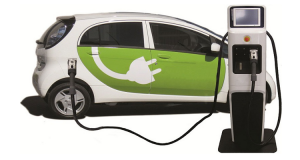 # ESL Plans to convert 35 small cars into Electric Vehicle by 2023, buses to be taken in the next phase
# ESL Plans to convert 35 small cars into Electric Vehicle by 2023, buses to be taken in the next phase
Bokaro: Vedanta Electrosteel (ESL) is planning to convert its 35 small cars into Electrical Vehicles (EVs) by 2023. The company also plans to take up the conversion of buses in the next phase and aims to completely shift to EVs by 2025, informed Public Relation Official ESL.
Jharkhand has adopted an e-mobility program in partnership with the Energy Efficiency Services Limited (EESL). The Jharkhand Bijli Vitran Nigam Limited (JBVNL) has signed an agreement with EESL for the deployment of 50 electric vehicles (EVs) at various JBVNL offices in Ranchi.
In line with the mission of India and Jharkhand e-mobility program, ESL is planning to switch to electric vehicles in place of conventional vehicles run on petrol and diesel by 2025, said the official.
The switching to Electric vehicles will help in Reduction in GHG emissions: The fuel efficiency is much more in EVs as compared to the conventional mode of transportation run by petrol and diesel. This initiative would reduce the scope of -3 emission of the industry; Reduction in Noise Pollution: EVs are generally quite silent and hence will produce less or no noise; Safe in nature: The chances of an explosion are very less as there is no use of inflammable substances in it. Moreover, because of the design feature, it is also less vulnerable to collision, he said.
Shashi Bhushan Pandey, Chairman of Management Studies & Research Centre (MSRC), Bokaro said, “ It is an international endeavor to replace petroleum propulsion engines with an electric propulsion mechanism for better sustainable development of the society in respect of reduction of suspended particulate matter (SPM).”
The children, old age people and population as a whole will not be affected by the smog creating environmental hazards in highly populated cities, said Pandey adding “The decision of ESL to set a target of 2025 to make ESL a company using only electric cars and buses, is highly appreciable and a strong initiative towards sustainable human development.”
The idea of no-fly ash is also consistent with environment control since it is no more a pollutant but has become a raw material and ingredient for cement as well as other products using clay, he said.



